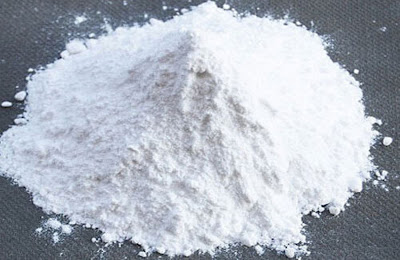Iodine Is A Mineral That Occurs Naturally In The Soil And Oceans Of The Planet
Detoxification and cleansing have become popular practices in
the pursuit of overall well-being. One often overlooked element that plays a
crucial role in these processes is iodine. Known primarily for its role in
thyroid function, iodine also possesses remarkable properties that make it a
key player in detoxification and cleansing. This article aims to explore the
various mechanisms by which iodine supports these processes, its impact on different
organs and systems, and how it can be incorporated into a holistic approach to
detoxification.
Before delving into iodine's detoxification properties, it is
essential to understand its relationship with thyroid function. The thyroid
gland relies on iodine to produce thyroid hormones, which regulate metabolism,
growth, and development. Iodine deficiency can lead to thyroid disorders, such
as hypothyroidism. However, the connection between iodine and detoxification
goes beyond thyroid health.
According To Coherent
Market Insights, The Global Iodine Market Is Estimated To Be Valued At US$
1,485 Million In 2021 And Is Expected To Exhibit A CAGR Of 5.4 % Over The Forecast
Period (2021-2028). Iodine
supports detoxification processes in several ways. Firstly, it aids in the
removal of harmful substances from the body. Iodine is a potent antioxidant,
neutralizing free radicals and protecting cells from oxidative stress. It also
stimulates the production of enzymes involved in phase I and phase II liver
detoxification pathways, enhancing the breakdown and elimination of toxins.
Moreover, iodine facilitates the removal of heavy metals,
such as mercury and lead, from the body. It forms complexes with these metals,
increasing their excretion through urine and feces. Additionally, iodine
supports the detoxification of halogens, such as bromine and fluoride, by
displacing them from receptor sites and promoting their elimination.
Iodine's detoxification effects extend beyond the liver and
can benefit various organs and systems. The skin, the body's largest organ, can
benefit from iodine's antibacterial and antifungal properties, promoting
healthy skin and reducing the burden of toxins on the body. Furthermore, iodine
supports kidney function, assisting in the filtration and elimination of waste
products.
Iodine's influence on the gastrointestinal system is also
noteworthy. It helps maintain a healthy gut microbiome by controlling the
growth of pathogenic bacteria, supporting proper digestion and nutrient
absorption. Moreover, iodine promotes regular bowel movements, facilitating the
elimination of toxins from the body.
Incorporating iodine into a holistic approach to
detoxification involves optimizing its levels in the body. However, it is
crucial to obtain iodine from natural sources rather than relying solely on
supplements. Sea vegetables, such as kelp and nori, are excellent sources of
iodine. Additionally, incorporating iodized salt, seafood, and organic dairy
products can help maintain adequate iodine levels.
It is essential to note that individual Iodine needs
vary, and it is recommended to consult a healthcare professional before
starting any iodine supplementation regimen. They can assess iodine levels and
provide guidance on the appropriate dosage and duration.
Iodine's role in detoxification and cleansing extends beyond
its association with thyroid health. Its antioxidant properties, support for
liver detoxification pathways, and ability to aid in the removal of heavy
metals and halogens make it a valuable tool in achieving overall well-being. By
incorporating iodine-rich foods into a balanced diet and considering
supplementation under professional guidance, individuals can harness iodine's
potential to support the body's natural detoxification processes and promote
optimal health.




Comments
Post a Comment